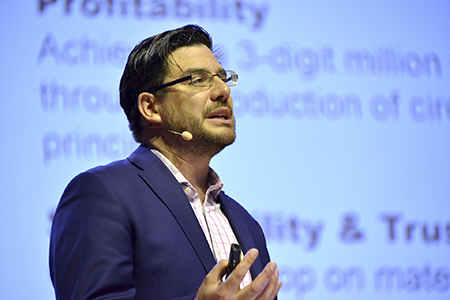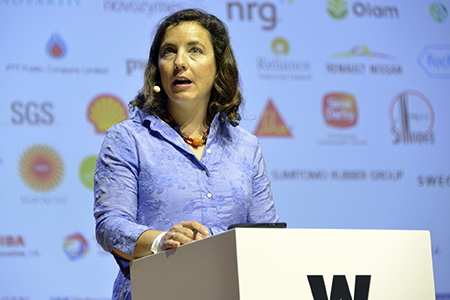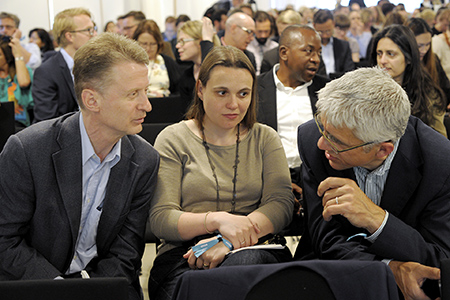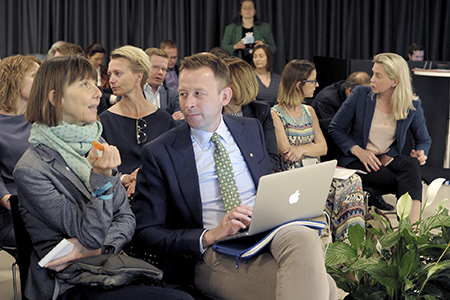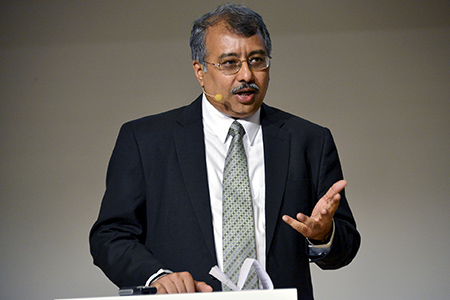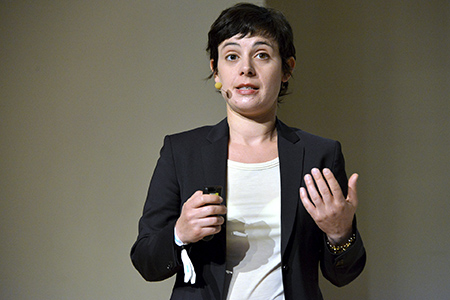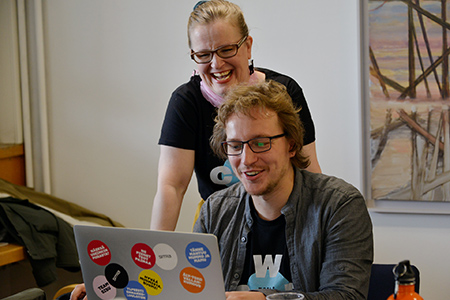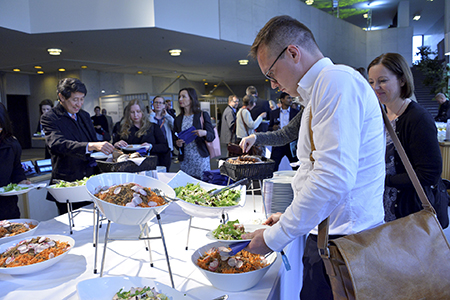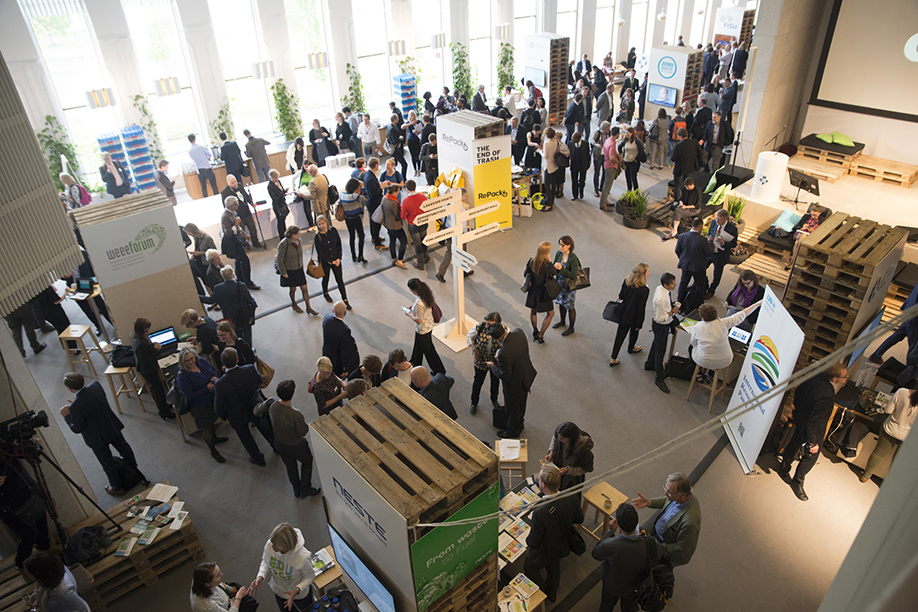Summary
WCEF2017 reconvened at the Finlandia Hall in Helsinki for the second and final day of formal deliberations. Sitra Director Mari Pantsar announced that Finland will host the Forum again in 2019. A Sitra partner will co-host the Forum in 2018.
At an opening plenary, some of the world’s business leaders who are pioneering the circular economy shared their insights and achievements in aligning their activities with action to address global mega-trends, including climate change and the UN Sustainable Development Goals (SDGs). Their bottom line was: “The best way to predict the future is to create it.” María Mendiluce launched the World Business Council for Sustainable Development’s (WBCSD) “CEO Guide to the Circular Economy” with Quentin Drewell of Accenture Strategy.
Four business representatives shared case studies of how their companies turned visions for the circular economy into leading business models: Isabel Fernandez, ING Bank; Matti Lievonen, Neste; Åsa Bergman, Sweco; and Karl-Henrik Sundström, Stora Enso.
The meeting continued in parallel sessions on: economic research on the circular economy; transformation to circular business models; forest-based bioeconomy and climate change mitigation; and circular by design - products in a circular economy. In the afternoon, parallel sessions were convened on: financing the circular economy; branding circularity for consumer value; future technologies for the circular economy; and supporting growth of circular SMEs.
The meeting was concluded in plenary with a “Grand Finale” moderated by Veera Heinonen, Sitra, and Peter Woodward, Quest Associates. Participants previewed a Sitra video capturing highlights of the Forum. Short statements followed from Daniel Calleja Crespo, European Commission; Ligia Noronha, UN Environment; Annika Rosing, Nordic Council of Ministers; Andrés Pesce, Fundacion Chile; László Borbély, Romanian Government; and Jennifer Gerholdt, The U.S. Chamber of Commerce Foundation Corporate Citizenship Center. These speakers then engaged in an interactive discussion with the audience.
Heinonen and Woodward presented nine key messages summarizing the conclusions of WCEF2017. These messages flag opportunities to:
- factor in the circular economy to our global economic model and mainstream thinking;
- achieve the SDGs with the help of the circular economy;
- drive the transition towards circular economy, particularly in businesses and cities;
- use regulation and economic instruments such as national road maps and public procurement for advancing the circular economy;
- generate economic growth and jobs while saving natural resources and reducing pollution with the circular economy;
- invest in new technologies, new business models, digitization and innovation for a circular economy;
- combat climate change with the circular economy to achieve carbon-neutral and resilient societies;
- stop thinking about waste, and instead make it a valuable resource; and
- consume services and produce more durable, repairable, reusable and recyclable products.
In a concluding statement, Mari Pantsar, Sitra, said circular economy is not only a necessity, but also “a tremendous opportunity for long-term prosperity and growth.”
Heinonen and Woodward closed the formal part of WCEF2017 at 5:00 pm. Informal networking and consultations continued during an evening reception at the City Hall, hosted by the City of Helsinki, and during various side events and field trips on Wednesday.
IISD Reporting Services, through its ENB+ Meeting Coverage, provided daily web highlights from WCEF 2017. In addition, IISD Reporting Services has published a summary report of WCEF 2017, which is available in HTML and PDF.
Business Leaders Session
Quentin Drewell, Accenture Strategy
María Mendiluce, World Business Council for Sustainable Development
Participants during the Business Leaders session
Branding Circularity Session
Anirban Ghosh, Mahindra Group
Annachiara Torciano, Samsung Nordics
Around the Venue
A view of the Marketplace
Photos courtesy of Sari Gustafsson/Sitra

